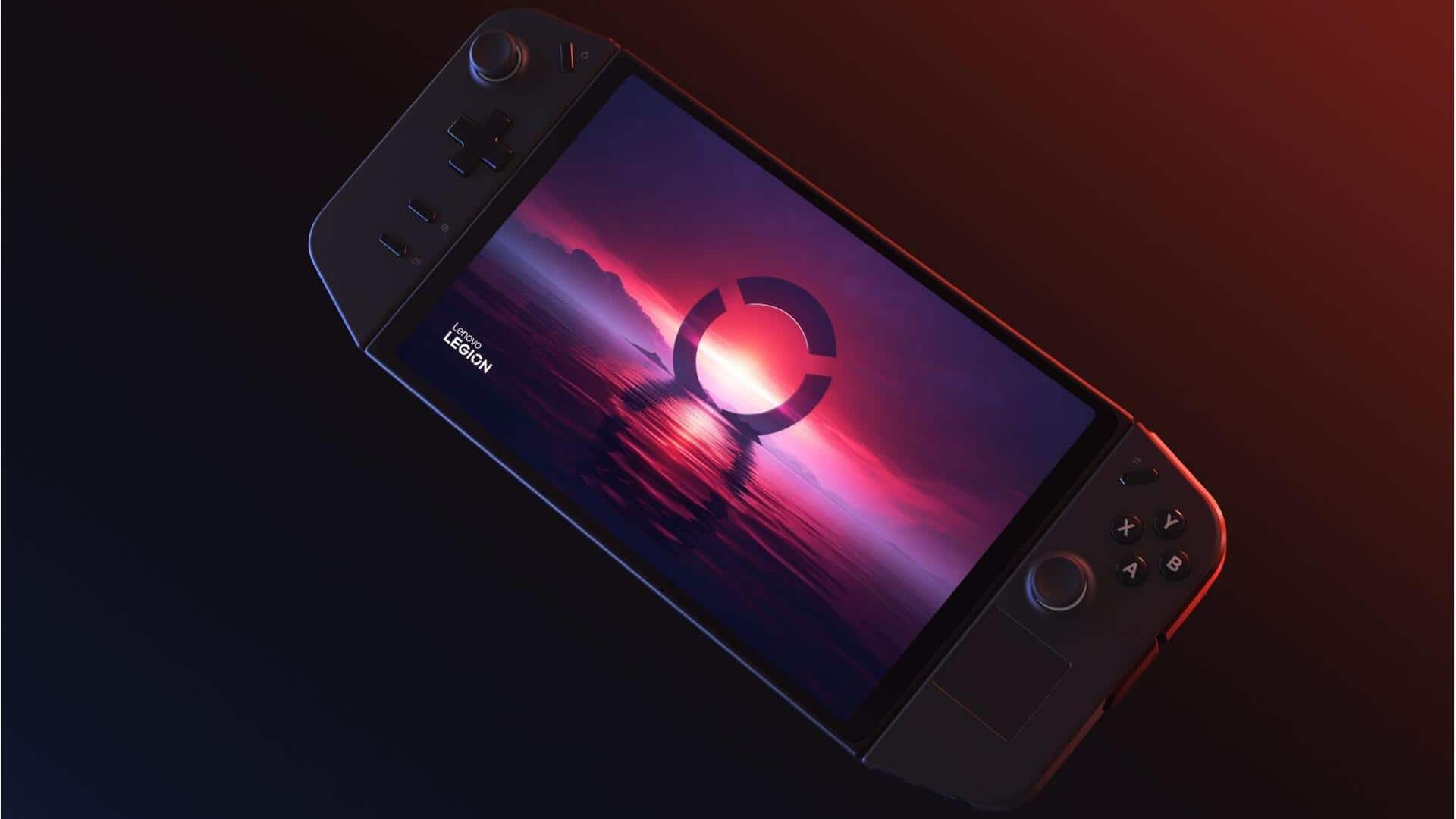
IFA 2023: Lenovo enters into handheld gaming with Legion Go
What's the story
Lenovo has entered the gaming handheld market with its Legion Go, a Windows-powered device, which competes directly with the ASUS ROG Ally.
Priced at $699 (nearly Rs. 57,800), it is expected to go on sale starting November.
As for the highlights, it features an 8.8-inch screen, AMD Ryzen Z1 Extreme processor, and a 49.2Wh battery. You get a range of gaming titles to choose from.
Details
The gaming console has a 144Hz IPS screen
In terms of design, the Legion Go resembles a cross between the Nintendo Switch and ASUS's ROG Ally, complete with detachable TrueStrike controllers, and a host of integrated gamepad controls/buttons.
It also gets a kickstand at the back to prop it up on a surface.
The gaming experience on the Legion Go is generally smooth and responsive, with the 8.8-inch QHD+ IPS screen, which gets 16:10 aspect ratio, 10-point touch, 144Hz refresh rate, 97% DCI-P3 color gamut, and 500-nits brightness.
Internals
It delivers solid performance and battery backup
The Legion Go is powered by AMD Ryzen Z1 Extreme chipset with AMD RDNA graphics. It comes with 16GB of LPDDR5X RAM and 256GB/512GB/1TB of SSD storage.
The gaming handheld boots Windows 11, and packs a 2-cell 49.2Wh battery, which supports 65W Type-C charging.
It is integrated with dual 2W speakers and a dual-array near-field microphone. Wireless connectivity options include Wi-Fi 6E and Bluetooth 5.2.
The device gets a 3.5mm jack, two Type-C ports, and a microSD card slot.
Insights
Battery life and thermals are about what you'd expect
The Legion Go has Coldfront thermal technology with a liquid crystal polymer 79-blade fan.
It keeps the gaming handheld cool at less than 25dB of fan noise in Quiet Mode, while still allowing it to reach a full 25W of TGP in Custom Mode.
In terms of power management, the device includes a power bypass mode that prevents the battery from additional deterioration while also removing heat that is typically produced during charging.
Scenario
Potential glitches may raise concerns about the gaming handheld
Unlike ASUS's collaboration with Microsoft for the ROG Ally, Lenovo has not worked closely with the tech giant, raising concerns about potential glitches and compatibility issues at launch.
Some games may appear to think they are running on a PC with a mouse and keyboard, which may lead to incorrect button prompts and potential confusion for users.
The device's success will certainly hinge on its integration with Windows and its launcher.